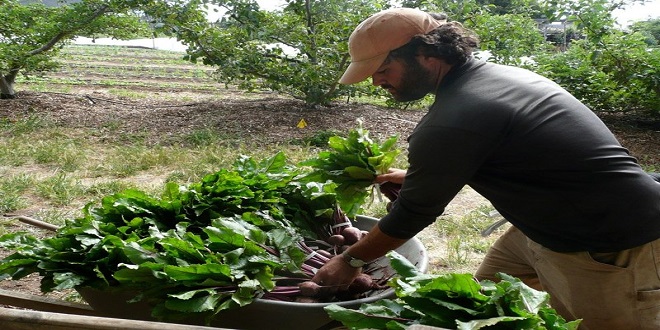The Center for Agroecology & Sustainable Food Systems, and the Farm & Garden Apprenticeship

THE END
The Center for Agroecology and Sustainable Food Systems (the Center) is a research, education, and public service unit of the Division of Social Sciences at the University of California, Santa Cruz, dedicated to increasing ecological sustainability and social justice in the food and agriculture system.
Center research and education efforts seek to increase understanding of the social, economic, political and ethical foundations of agricultural sustainability; to establish the ecological and agronomic basis for sustainable production systems; and to demonstrate and facilitate the use of information critical to the adoption of sustainable food and agriculture systems.
The Center’s work covers a spectrum that includes academic education and practical training, theoretical and applied research, and public service for audiences ranging from international grower groups to local school children. The Center’s Alan Chadwick Garden and the 25-acre UCSC Farm are unique organic demonstration, education, and research sites on the UCSC campus.
The Farm & Garden Apprenticeship is a six-month training program held annually at the Center’s farm and garden sites. Initiated by Alan Chadwick in 1967, this full-time course now brings participants of all ages from around the world to learn the basic skills of organic gardening and farming, while also studying the complex social and environmental issues surrounding sustainable agriculture and food systems.
The program combines classroom instruction, small group demonstrations, and readings with hands-on learning in the fields, gardens, greenhouses, and orchards. The main instructors in the Apprenticeship course are the Farm Manager, the two Garden Managers, and the Community Supported Agriculture (CSA) Manager who work daily alongside the apprentices, present classes, and lead training sessions. UCSC faculty, researchers, and members of the agricultural community add a wide range of expertise to the course.
To date more than a thousand apprentices have completed the Apprenticeship training program. Graduates have established their own commercial farms and market gardens, run community gardens for inner city and prison populations, and developed
THE END
school garden programs. Many graduates take part in international development and food security project. Others have raised the standards of the organic food industry through work with certification programs and retailers. One of the most important outcomes of the Apprenticeship is the ripple effect our graduates have working locally, nationally, and internationally to promote, practice, and teach sustainable, organic farming and gardening



